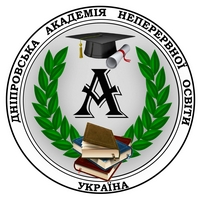TYPES OF PROFESSIONAL COMPETENCE OF A MODERN TEACHER
Abstract
The article defines the essence of the concepts "competence", "professional competence", "inclusive" and "methodical" as components of the teacher's professional competence. The essence of each of the components of inclusive competence was considered and the expediency of including inclusive competence in the composition of key (life) and professional competences was determined. The levels of formation of knowledge, abilities and skills of the participants of educational activities in an inclusive environment are summarized, and it is also clarified that the unity of theoretical and practical readiness of a specialist to perform professional functions is professional competence. In accordance with this, the components of inclusive competence (motivational, cognitive, operational and reflective) are distinguished. According to the views of many scientists, the problems of competency reform have been identified, namely, that currently up to 65% of teachers who are students of professional development courses do not know the methods of working with children with special educational needs. The article highlights the teacher's readiness for socio-pedagogical activities in schools with inclusive education, taking into account the criteria of inclusive readiness. The structure of methodical competence and its components were studied, namely: methodical culture, methodical creativity, methodical thinking, as well as the formation of methodical competences of workers. The basic regulatory and legal documents that define organizational issues and outline an inclusive indicative vector of personnel training have been provided. The article focuses on the formation of the situational interest of teachers in the formation of inclusive and methodical competence, the motives for mastering professional growth in the conditions of inclusive education. A teacher's pedagogical competence is the unity of his theoretical, practical, and ethical readiness to carry out pedagogical activities. And also, the contradictions between the modern world trend of recognizing the professional training of teachers to work in the conditions of an inclusive environment from the priority areas of educational training and the approach in Ukraine are determined.
References
(дата звернення: 10.10.2022).
2. Бібік Н. М. Компетентнісний підхід: рефлексивний аналіз застосування. Київ: К.І.С, 2004. 111 с.
3. Захарчук М. Є. Аналіз системи підготовки педагогів інклюзивної школи у США. Науковий вісник Мелітопольського державного педагогічного університету. 2014. № 1. С. 21–28.
4. Кайдалова Л. Г. Теоретичні засади компетентнісного підходу до професійного навчання. URL: https://dspace.nuph.edu.ua/bitstream/123456789/5522/1/%D0%A2%D0%B5%D0%BE%D1%80%D0%B5%D1%82.%D0%B7%D0%B0%D1%81%D0%B0%D0%B4%D0%B8.pdf (дата звернення: 10.10.2022).
5. Колупаєва А. А. Інклюзивна освіта: реалії та перспективи: монографія. Київ: Самміт-книга, 2009. 326 с.
6. Мотуз Т., Пасічник Л., Баранець Я. Інформаційно-комунікаційні технології в інклюзивному середовищі закладу освіти. Збірник наукових праць Уманського державного педагогічного університету. 2021. № 1. C. 172–181.
7. Сиченко В. В., Мареніченко В. В. Розвиток системи публічного управління в контексті компетентнісного підходу. Публічне управління та регіональний розвиток. 2022. № 16. C. 576–597. URL: https://dspace.chmnu.edu.ua/jspui/bitstream/123456789/747/1/%D0%A1%D0%B8%D1%87%D0%B5%D0%BD%D0%BA%D0%BE%20%D0%92.%20%D0%92.%20%D0%A0%D0%BE%D0%B7%D0%B2%D0%B8%D1%82%D0%BE%D0%BA%20%D1%81%D0%B8%D1%81%D1%82%D0%B5%
D0%BC%D0%B8.pdf (дата звернення: 12.10.2022).
8. Шевців З. М. Професійна підготовка майбутніх учителів початкової школи до роботи в інклюзивному середовищі загальноосвітнього навчального закладу: монографія. Київ: Центр учбової літератури, 2017. 384 с.
9. Raven, J., & Stephenson, J. (Eds.). (2001). Competence in the Learning Society New York: Peter Lang. URL: http://www.johnraven.co.uk/eyeonsociety/resources/CILSChap1.pdf (дата звернення: 12.10.2022)

 ISSN
ISSN  ISSN
ISSN 

